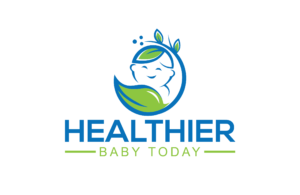Being a parent means facing many issues, and allergies are no exception. Babies can develop allergies to pollen, food, pet dander, and more. This leads to questions like: what baby allergy medicine is safe to use, and when is it appropriate to start treatment? Don’t worry, though – this article can help you navigate this crucial topic.
Table of Contents
Overview of Baby Allergies
Allergies affect a significant number of children in the United States. More than 7 million kids have environmental allergies. Understanding the type of allergies that affect these small humans cannot only help recognise symptoms but also seek the appropriate treatment. Let’s delve into some of the most common allergies!
Common Allergies in Infants and Toddlers
The two most common allergies in infants and toddlers include food and the environment.
Here is a breakdown of the two:
Food Allergies
Many parents are concerned because mild reactions can cause hives, while more severe reactions can lead to anaphylaxis. Foods that typically cause an allergic reaction include milk, eggs, peanuts, nuts, soy, wheat, fish, and shellfish.
Environmental Allergies
Environmental allergies can stem from things like pollen, dust mites, pet dander and mold. The FDA says that many children suffer from allergic rhinitis, which is often triggered by these allergens. Infants or children may sneeze, have a runny nose, itchy eyes, and be congested.
Understanding Baby Allergy Medicine
There are many different medications for treating allergies, but it is important to make informed decisions. This section explores antihistamines, nasal sprays, and even decongestants.
What are antihistamines?
The human body releases a substance called histamine during an allergic reaction. Antihistamines block this substance, which can help alleviate symptoms. This means saying goodbye to itching, sneezing and a runny nose.
Two great over-the-counter antihistamines include:
- Benadryl: While this medicine is effective, it may cause drowsiness.
- Zyrtec: This option typically gets used during the day because it’s less likely to cause drowsiness.
It is, however, important to note that antihistamines should not be given to children under the age of two.
Overview of nasal sprays
Nasal sprays can provide quick relief from broken nasal congestion and inflammation as they directly deliver the medication to the nasal passages. Older children are typically prescribed Intranasal corticosteroids.
Safe use of decongestants
The use of decongestants should be limited in babies and young children because the side effects can be life-threatening. Always consult a healthcare provider before administering decongestants.
Safety Guidelines for Allergy Medicine Use in Babies
While many allergy medications are safe for babies, they can still have side effects.
Side effects
- Drowsiness
- Dry mouth
- Irritability
What to avoid
Some experts recommend staying away from medicine that contains aspirin as it can affect the liver and brain. The use of aspirin can be linked to a serious condition known as Reye’s syndrome, which has awful repercussions. It’s best to just stay away!
How to Recognize Allergy Symptoms in Babies
Common signs and symptoms
- Sneezing
- Runny or stuffy nose
- Itchy or watery eyes
- Skin rashes or hives
- Vomiting or stomach discomfort (if related to food allergies)
Differentiating allergies from other conditions
Some illnesses like colds and infections have similar symptoms to all allergies. However, knowing the difference between the two is important. The biggest difference between allergies and other conditions is how long they persist. Allergies typically take longer and have more specific triggers.
Importance of Consulting Healthcare Professionals
Allergies can be harmless, but in some cases, immediate medical attention is needed. Here are the signs you should be looking out for:
- Intense and persistent symptoms
- Difficulty swallowing or breathing
- Face, lips or tongue swelling
Conclusion
Dealing with allergies in babies can be quite a challenge, but understanding what medications are safe and how to manage your child’s symptoms can make all the difference. You can make decisions about your baby’s care!
Make sure to consult with a healthcare professional when symptoms arise or even persist. It’s about keeping your little ones comfortable so that they can live a happier, healthier, and allergy-free life.
FAQs
What baby allergy medicine can an infant take?
Medications like cetirizine or loratadine are safe for babies to use, but they should be used under a doctor’s supervision. Saline nasal drops are great for relieving nasal congestion and have no side effects, which is ideal for infants.
Should I worry if my baby’s tongue is swollen?
Yes, this is an indication of a serious allergic reaction known as anaphylaxis, which requires immediate treatment and care. Parents typically experience a range of symptoms when their baby has anaphylaxis, which includes difficulty breathing, hives, vomiting, or swelling in the face or lips.
Even if the swelling is mild, make sure to get your baby checked by a healthcare professional, as it could indicate an underlying allergic response or another medical condition. If your baby has been diagnosed with allergies, follow your doctor’s emergency action plan. This typically includes administering epinephrine.


